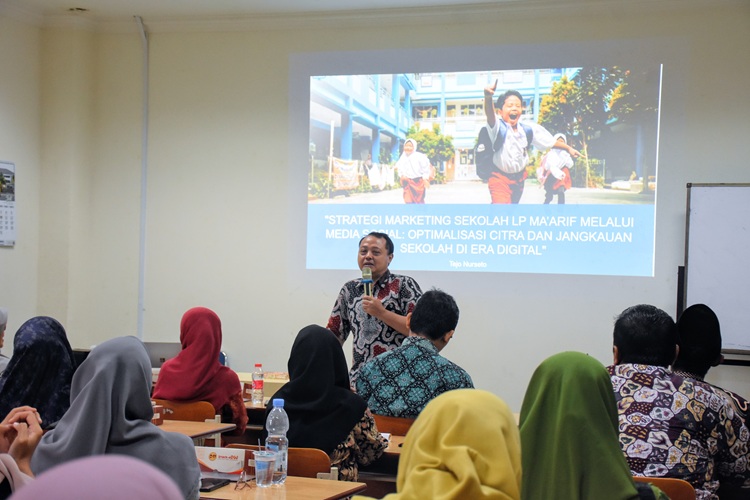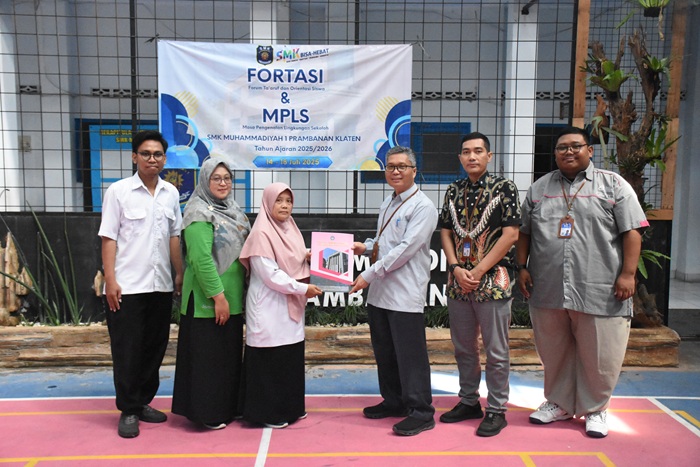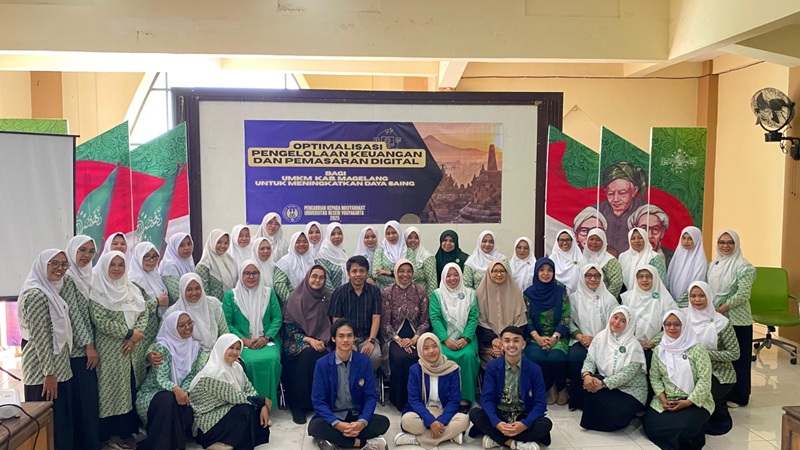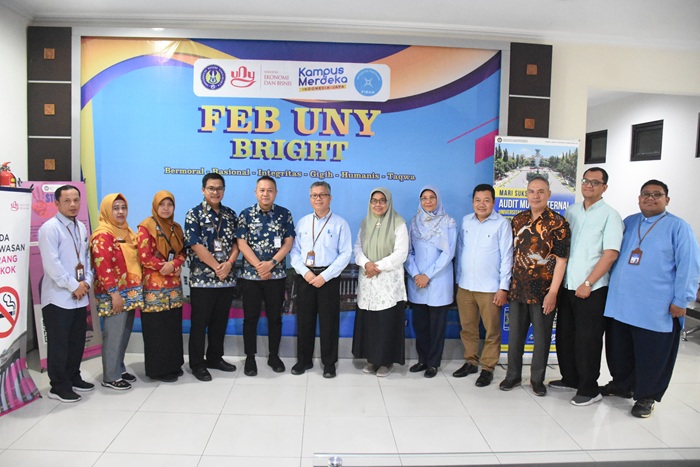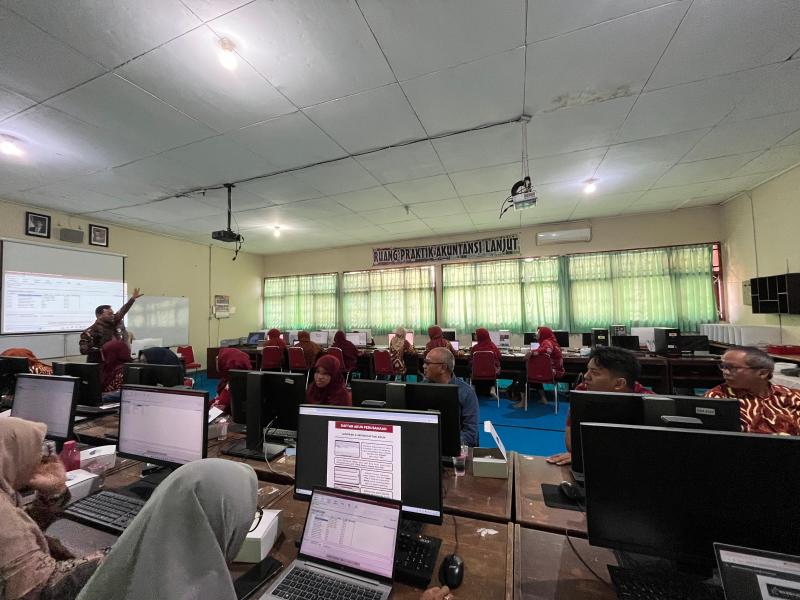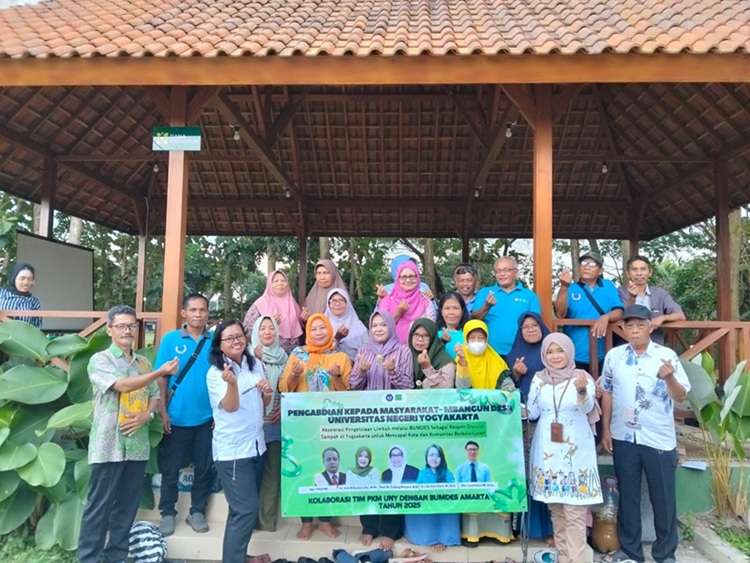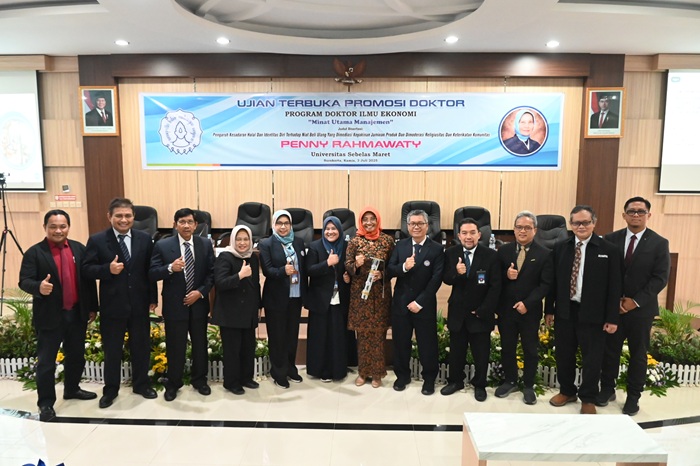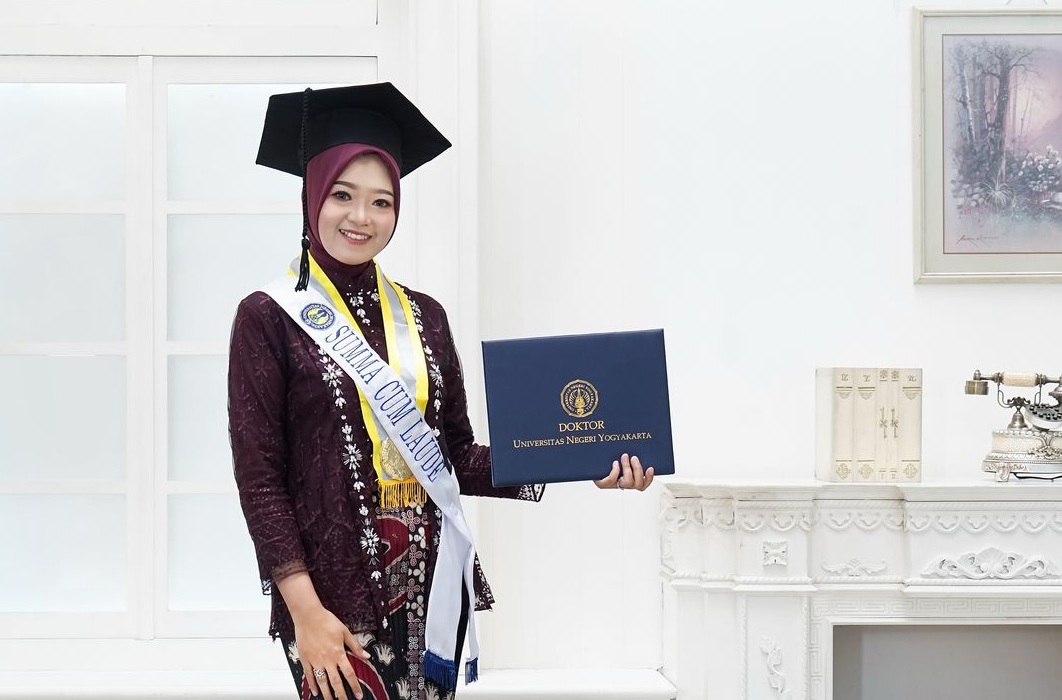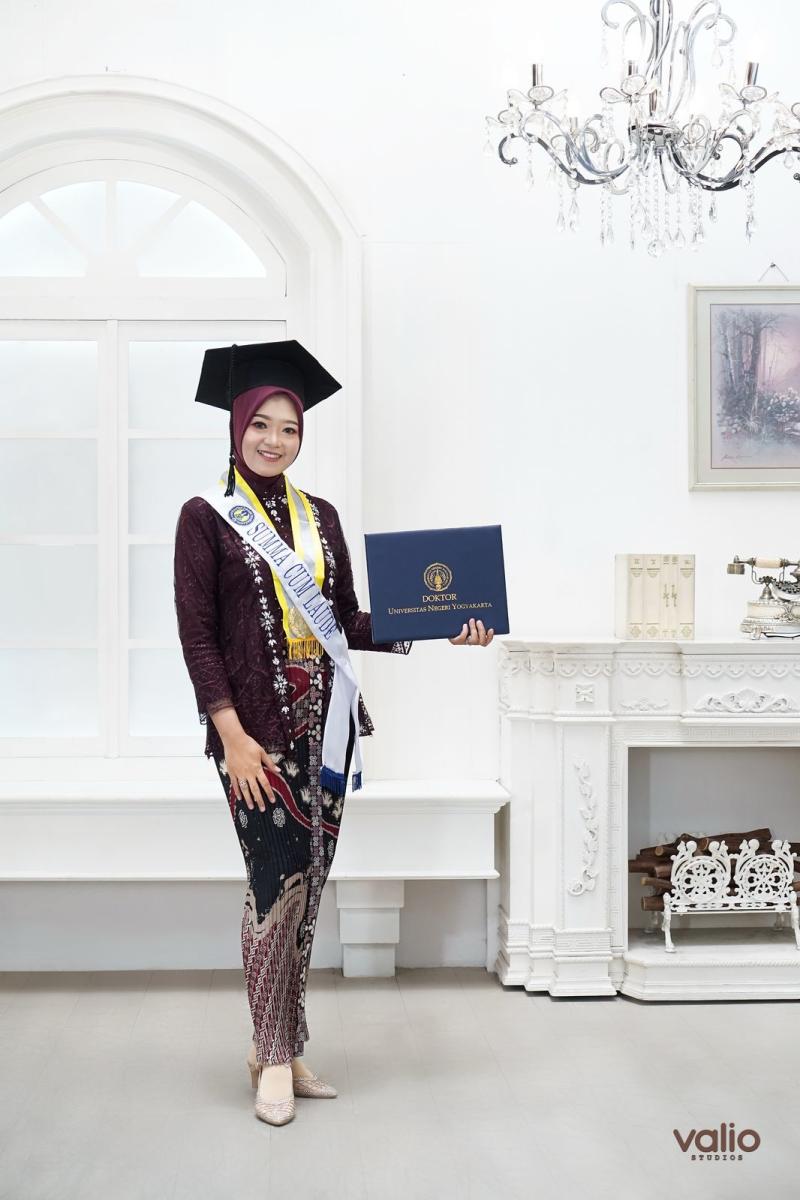Kembangkan E-Learning Berbasis MOOC, Ahmad Chafid Alwi Raih Gelar Doktor Ilmu Pendidikan
Submitted by feb on Fri, 01/08/2025 - 16:50
Ahmad Chafid Alwi, dosen Departemen Pendidikan Ekonomi, berhasil meraih gelar Doktor Ilmu Pendidikan setelah mempertahankan disertasinya yang berjudul "Model E-learning Berbasis Massive Open Online Course (MOOC) untuk Meningkatkan Literasi Ekonomi Mahasiswa" pada ujian terbuka yang digelar di Program Pascasarjana UNY.
Penelitian yang dilakukan Ahmad Chafid Alwi bertujuan untuk mengembangkan, memvalidasi, menguji efektivitas, dan menguji kepraktisan sebuah model e-learning berbasis MOOC yang dirancang khusus untuk meningkatkan literasi ekonomi mahasiswa. Model ini mengintegrasikan prinsip konektivitas, konstruktivisme, dan component display theory guna menciptakan pengalaman belajar yang lebih bermakna, fleksibel, dan relevan dengan isu-isu ekonomi yang dihadapi masyarakat saat ini. Produk e-learning ini diharapkan mampu menghadirkan pembelajaran literasi ekonomi yang mudah diakses, interaktif, serta mendorong mahasiswa untuk memahami konsep ekonomi secara lebih kritis.
Secara metodologis, penelitian ini menggunakan metode Research and Development (R&D) dengan tahapan need assessment, front-end analysis, design, development, implementation, evaluation, dan analysis. Penelitian dilaksanakan di Universitas Negeri Yogyakarta dan Universitas Nahdlatul Ulama dengan melibatkan 88 mahasiswa sebagai responden. Data dikumpulkan melalui survei, validasi ahli, serta penilaian terhadap uji coba produk melalui pre-test dan post-test. Instrumen yang digunakan meliputi kuesioner validasi ahli dan skala Likert untuk uji kepraktisan, dengan analisis data kuantitatif dan kualitatif, termasuk analisis netnografi untuk memperkaya substansi konten.
Hasil penelitian menunjukkan bahwa model e-learning berbasis MOOC yang dikembangkan memiliki karakteristik fleksibel, terbuka, interaktif, asinkron, dan dilengkapi studi kasus hasil analisis netnografi. Produk ini meraih tingkat validitas tinggi dari ahli media (92,9%) dan ahli materi (85%), menunjukkan efektivitas yang signifikan dalam meningkatkan literasi ekonomi mahasiswa dengan p-value = 0,0001 dan nilai Cohen’s d = 0,89 (kategori besar). Selain itu, uji kepraktisan menunjukkan angka 88,75%, mengindikasikan produk sangat layak digunakan dalam pembelajaran.
Sidang terbuka promosi doktor ini menghadirkan dewan penguji yang terdiri atas Prof. Dr. Dyah Kumalasari, M.Pd. (Ketua Penguji), Dr. Pujiriyanto, M.Pd. (Sekretaris Penguji), Prof. Sukirno, Ph.D. (Promotor 1), Prof. Dr. Arif Rohman, M.Si. (Promotor 2), Prof. Dr. Drs. Asrori, M.S. (Penguji 1), dan Prof. Dr. Siswanto (Penguji 2). Keberhasilan ini menambah deretan prestasi akademik Departemen Pendidikan Ekonomi dan memperkuat kontribusinya dalam pengembangan inovasi pembelajaran di era digital.
Capaian Ahmad Chafid Alwi selaras dengan Tujuan Pembangunan Berkelanjutan (Sustainable Development Goals), khususnya SDG 4 (Pendidikan Berkualitas), SDG 8 (Pekerjaan Layak dan Pertumbuhan Ekonomi), SDG 9 (Industri, Inovasi, dan Infrastruktur), dan SDG 10 (Berkurangnya Kesenjangan). Diharapkan hasil penelitiannya dapat menjadi rujukan penting bagi akademisi, pengembang teknologi pendidikan, dan pembuat kebijakan dalam mengimplementasikan pembelajaran literasi ekonomi yang lebih inklusif dan berkelanjutan. (fdhl)


